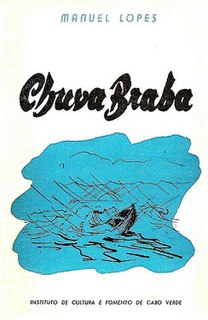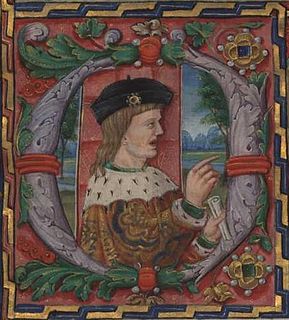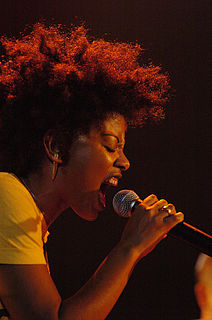
Érico Lopes Verissimo was an important Brazilian writer, born in the State of Rio Grande do Sul.
António Filipe Lopes Ribeiro was a Portuguese film director.

Baltasar Lopes da Silva was a writer, poet and linguist from Cape Verde, who wrote in both Portuguese and Cape Verdean Creole. With Manuel Lopes and Jorge Barbosa, he was the founder of Claridade. In 1947 he published Chiquinho, considered the greatest Cape Verdean novel and O dialecto crioulo de Cabo Verde which describes different dialects of creoles of Cape Verde. He sometimes wrote under the pseudonym Osvaldo Alcântara.

Claridade was a literary review inaugurated in 1936 in the city of Mindelo on the island of São Vicente, Cape Verde. It was part of a movement of cultural, social, and political emancipations of the Cape Verdean society. The founding contributors were Manuel Lopes, Baltasar Lopes da Silva, who used the poetic pseudonym of Osvaldo Alcântara, and Jorge Barbosa, born in the Islands of São Nicolau, Santiago and São Vicente, respectively. The magazine followed the steps of the Portuguese neorealist writers, and contributed to the building of "Cape Verdeanity", an autonomous cultural identity for the archipelago.
Manuel António de Sousa Lopes was a Cape Verdean novelist, poet and essayist. With Baltasar Lopes da Silva and Jorge Barbosa he was a founder of the journal Claridade, which contributed to the rise of Cape Verdean literature. Manuel Lopes wrote in Portuguese, using expressions typical for Cape Verdean Portuguese and Cape Verdean Creole. He was one of those responsible for describing world calamities of the droughts that caused several deaths in São Vicente and Santo Antão.

Lídia Jorge is a prominent Portuguese novelist and author whose work is representative of a recent style of Portuguese writing, the so-called "Post Revolution Generation".

Chuva Braba is a novel published in 1956 by Cape Verdean author Manuel Lopes. The book was awarded the Fernão Mendes Pinto award. Along with Claridade, Baltazar Lopes participated with Manuel Lopes and Jorge Barbosa with founded members of the review and the name was the movement in the main activists of the same.
São João Baptista is a freguesia of Cape Verde. It covers the larger, southern part of the municipality of Porto Novo, on the island of Santo Antão.

Henrique Teixeira de Sousa was a doctor and author from Cape Verde.

Manuel Luís Nunes Sousa Goucha is a Portuguese television presenter and journalist (TVI). The presenter of a long-lasting morning show in RTP, followed by another in rival TVI, Goucha was also known for culinary TV programmes and books, as well as a brief spell as an actor. He also owns a restaurant. He is one of the most notorious Portuguese public figures who are openly homosexual.

Luis Carlos Verzoni Nejar, better known as Carlos Nejar, is a Brazilian poet, author, translator and critic, and a member of the Academia Brasileira de Letras. One of the most important poets of its generation, Nejar, also called "o poeta do pampa brasileiro", is distinguished for his use of an extensive vocabulary, alliteration, and pandeism. His first book, Sélesis, was published in 1960.

Portuguese customary units were used in Portugal, Brazil and other parts of the Portuguese Empire until the adoption of the metric system in the 19th century.

The 2011 Portuguese presidential election was held on 23 January 2011. This election resulted in the re-election of Aníbal Cavaco Silva to a second term as President of Portugal. Turnout in this election was very low, where only 46.52% of the electorate cast their ballots. Cavaco Silva won by a landslide winning all 18 districts, both Autonomous regions of Azores and Madeira and 292 municipalities of a total of 308.

The Palácio de Lahane, also known as the Palácio das Nobres, is a historic building in East Timor. As of 2022, its primary function was as a reception space for the East Timorese government.

The Portuguese Renaissance refers to the cultural and artistic movement in Portugal during the 15th and 16th centuries. Though the movement coincided with the Spanish and Italian Renaissances, the Portuguese Renaissance was largely separate from other European Renaissances and instead was extremely important in opening Europe to the unknown and bringing a more worldly view to those European Renaissances, as at the time the Portuguese Empire spanned the globe.

The history of the cinema of Cape Verde dates back to the arrival of filmmakers in the early twentieth century. The first picture house was established in Mindelo around 1922, called Eden Park.

The Castle of Mirandela is a medieval castle in the civil parish of Mirandela, municipality of the same name, in the Portuguese district of Bragança.

António Aurélio Gonçalves, better known as Nhô Roque, was a Cape Verdean writer, critic, historian and professor.

The Literature of Cape Verde is among the most important in West Africa, it is the second richest in West Africa after Mali and modern day Mauritania. It is also the richest in the Lusophone portion of Africa. Most works are written in Portuguese, but there are also works in Capeveredean Creole, French and notably English.

Thalma de Freitas is a Brazilian actress, singer and composer.

















